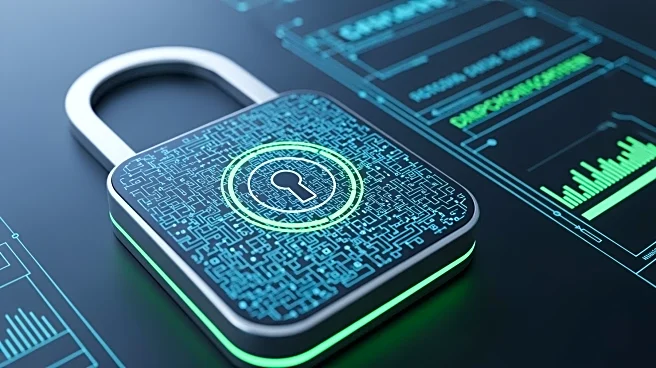What's Happening?
An indictment has been released alleging that suspected Iranian hackers accessed the email account of John Bolton, former national security adviser, and issued threats to release sensitive materials. The indictment, which accuses Bolton of mishandling
classified information, follows President Trump's public call for the Justice Department to prosecute his adversaries. The document details that in July 2021, a representative of Bolton contacted the FBI to report the hack, suspecting Iranian involvement. The hackers threatened to release Bolton's emails, drawing parallels to the 2016 leak of Hillary Clinton's emails. The indictment also notes that Bolton's representative informed the FBI of plans to delete the hacked email contents. Despite the threats, it remains unclear if the hackers released any information or what demands were made to Bolton.
Why It's Important?
This development underscores the persistent threat of cyberattacks from state actors like Iran, particularly targeting high-profile individuals in the U.S. government. The incident highlights vulnerabilities in cybersecurity and the potential for sensitive information to be exploited for political purposes. The situation also reflects ongoing tensions between the U.S. and Iran, with cyber warfare being a significant component of modern geopolitical conflicts. The implications for U.S. national security are profound, as such breaches can undermine trust in governmental processes and potentially influence political dynamics.
What's Next?
The indictment against Bolton could lead to further legal proceedings, with potential implications for how classified information is handled by former government officials. The case may prompt a review of cybersecurity measures for individuals who have held sensitive positions. Additionally, the U.S. government may need to enhance its strategies to counter cyber threats from foreign adversaries, potentially leading to increased funding and resources for cybersecurity initiatives.
Beyond the Headlines
The ethical and legal dimensions of this case are significant, as it raises questions about the balance between transparency and security in government operations. The use of cyberattacks as a tool for political leverage also highlights the evolving nature of international relations and the need for robust legal frameworks to address such challenges. Long-term, this incident could influence policy discussions on cybersecurity and the protection of personal data for public officials.















